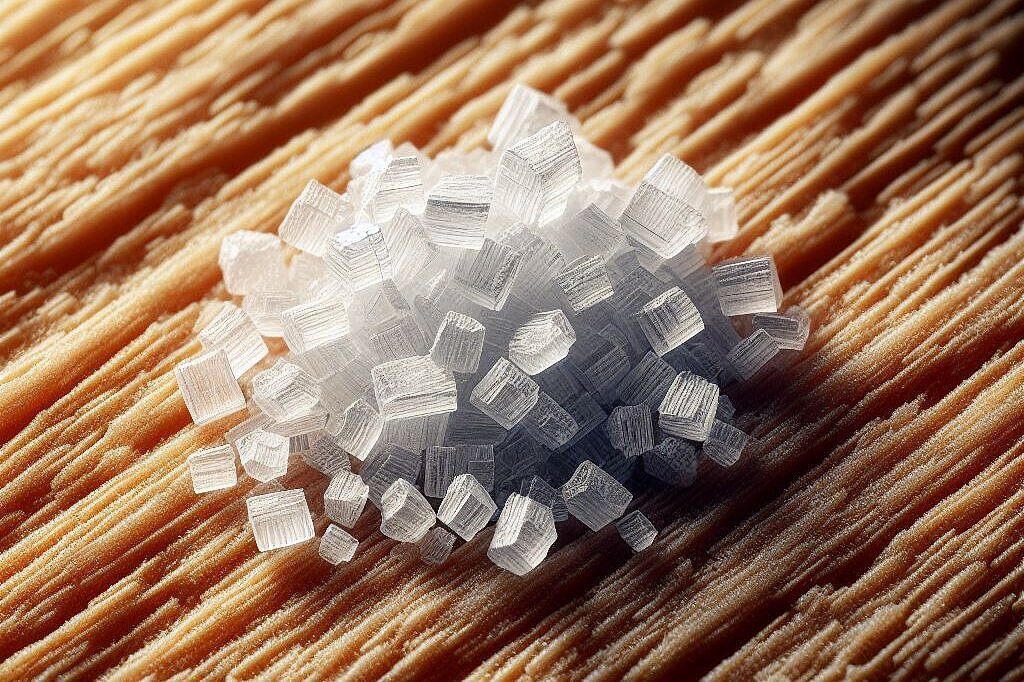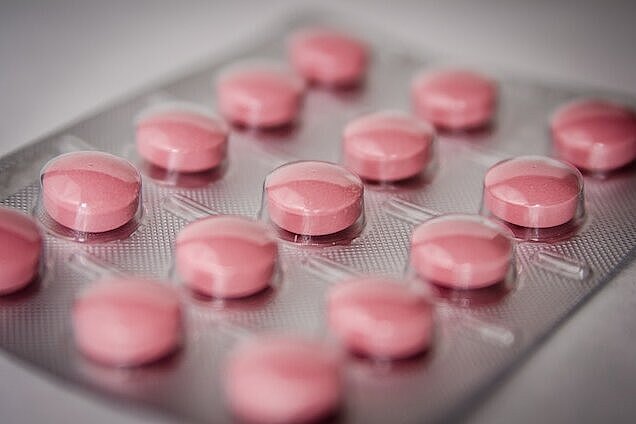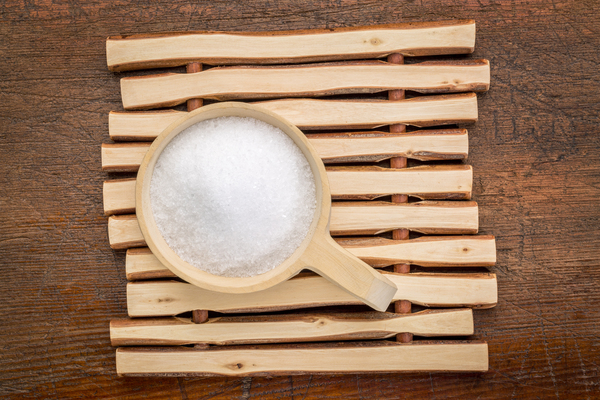Iodine

What is iodine and why is it important?
Iodine is a chemical element that only occurs in very small quantities in nature. It is therefore a so-called trace element that the body cannot produce itself and must absorb through food. Iodine is particularly important for the function of the thyroid gland, which produces hormones from iodine and other building blocks. Among other things, these hormones control energy consumption, body temperature, growth and development in dogs.
How much iodine does your dog need?
The optimal amount of iodine for your dog depends on various factors, such as his age, size, activity level and health. However, a general recommendation is that an adult dog needs around 50 to 220 micrograms of iodine per kilogram of body weight per day. This corresponds to about 0.05 to 0.22 milligrams per kilogram. Puppies and pregnant or nursing bitches have a higher requirement for iodine as they are still growing or need to produce milk.
How can you supply your dog with iodine?
Most dogs get enough iodine from their food, especially if they are fed a high-quality dry or wet food. These foods are usually enriched with all the important nutrients your dog needs. However, you can also make sure that you feed your dog foods that are rich in iodine. These include, for example:
- Sea fish such as salmon, mackerel or herring
- Seafood such as mussels, prawns or seaweed
- eggs
- Dairy products such as yogurt or cheese
- Vegetables such as spinach, broccoli or carrots
However, you should be careful not to give your dog too much iodine, as this can lead to health problems.
What are the benefits and disadvantages of iodine for dogs?
Iodine has many health benefits for dogs when given in the right amount. Adequate iodine levels can, for example:
- Support thyroid function and thus regulate the metabolism
- Strengthen the immune system and prevent infections
- Promote skin and coat health and reduce hair loss
- Improve nerve function and facilitate learning
- Increase fertility and prevent miscarriages
However, too much iodine can also be harmful and lead to hyperthyroidism or hypothyroidism. This in turn can lead to symptoms such as:
- Weight loss or weight gain
- Loss of appetite or ravenous hunger
- Restlessness or lethargy
- Palpitations or heart failure
- vomiting or diarrhea
lead to. So if you suspect that your dog is getting too much or too little iodine, you should consult a vet and have their iodine levels checked.
Iodine is an important trace element for dogs, which they must ingest through their food. It has many positive effects on the health of dogs when administered in the correct amount. However, too much or too little iodine can lead to thyroid problems and other ailments. You should therefore make sure that you give your dog a balanced diet that meets its iodine requirements.
If you notice any signs of hypersensitivity or poisoning in your dog, you should see your vet immediately. We are not a substitute for a vet, but we try to be as accurate as possible. Every dog reacts differently and we recommend you get a second opinion or consult your vet if in doubt.
Stay healthy and take good care of your four-legged friend!😊
Similar to Iodine
Selenium is a chemical element that occurs in nature in various forms. There are organic and inorganic selenium compounds, which differ in their bioavailability and effect. Organic selenium...
The optimum amount of zinc for your dog depends on various factors, such as his age, size, state of health and diet. The German Nutrition Society (DGE) recommends a daily zinc intake of 2 to 5...
Iron is a chemical element that occurs naturally. It is an important component of hemoglobin, the red blood pigment. Hemoglobin binds oxygen in the lungs and transports it to cells throughout the...
The optimum magnesium intake for dogs depends on various factors, such as your dog's age, weight, activity level and state of health. It is therefore difficult to give a general recommendation....



